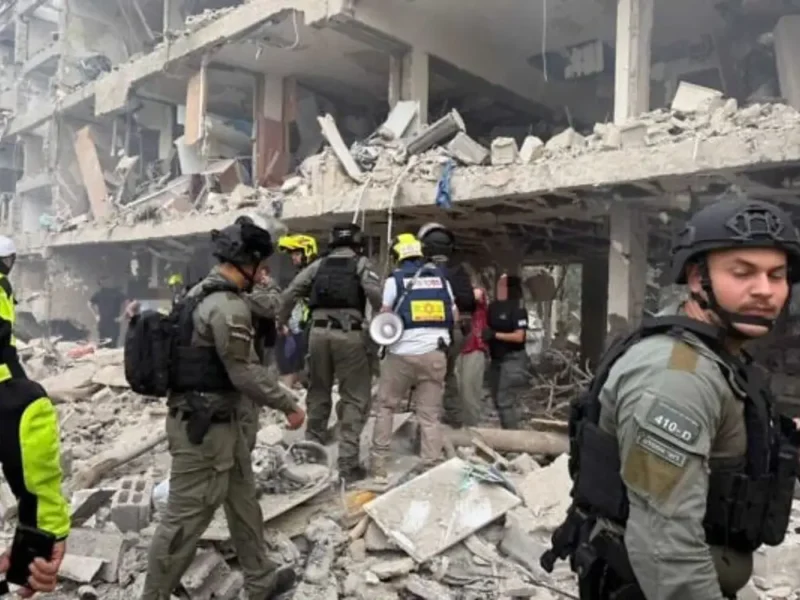
Surgeon General Vivek Murthy Reassures Americans COVID Vaccines Are Safe, Following Pause on Johnson and Johnson
Surgeon General Vivek Murthy reassured Americans that the Pfizer and Moderna COVID vaccines were safe at a White House briefing April 15. “The safety profile for the Pfizer and Moderna vaccines are very strong. Vaccines are our most powerful pathway out of the pandemic,” said the Indian American physician, in response to a question from India-West. (Zoom screen grab)
By SUNITA SOHRABJI/India-West Staff Reporter
Surgeon General Vivek Murthy and National Institutes of Health Director Francis Collins reassured Americans that the Pfizer and Moderna COVID vaccines were safe, at a White House briefing April 15.
Their remarks came two days after the White House ordered a pause on the single shot Johnson and Johnson vaccine as six women developed extremely rare blood brain clots six days after receiving the vaccine. The women, who were not identified, are between the ages of 18 and 48. One woman died in March, while another is in critical condition. Three remain hospitalized and two have been discharged, according to The Washington Post.
The Food and Drug Administration and the Centers for Disease Control April 13 jointly ordered a pause on the administration of the J&J vaccine for an undetermined period of time. At a press briefing that day, White House COVID Response Director Jeff Zients said the pause would not impact President Joe Biden’s ambitious plan of administering 200 million vaccine shots by his 100th day in office. More than 172 million people have already received at least one dose.
The J&J vaccine makes up only five percent of vaccine supply: the U.S. currently has 190 million doses of the two-dose Pfizer and Moderna vaccines, and will have 300 million doses by the end of July.
At the April 15 press briefing hosted by the White House Faith and Community Engagement office, Murthy said the FDA and the CDC had recommended the pause “out of an abundance of caution.” The rare, but dangerous, brain blood clot was flagged by the CDC safety system. The pause allows the FDA and the CDC to determine whether there is truly a correlation between the vaccine and the brain clot, the Indian American physician said, noting that people get clots all the time, but this particular clot is unusual.
The symptoms will develop six to 13 days after receiving the Johnson and Johnson vaccine, said Murthy, adding, however: “If you have received the Johnson and Johnson vaccine, the overwhelming odds are that you will be fine.”
He noted that just six people, out of the 7.5 million people who have received the J&J vaccine, have developed the brain clot. “This is an example of the CDC safety system working effectively. Don’t be surprised if that number goes up: we are asking people to be vigilant and report,” he said.
Responding to a question by India-West about vaccine hesitancy, especially among minority communities, Murthy said: “The safety profile for the Pfizer and Moderna vaccines are very strong. Vaccines are our most powerful pathway out of the pandemic.”
Collins said the clots have occurred in pre-menopausal women between the ages of 18 and 38. Researchers are investigating possible adverse effects from women who use oral contraceptives and developed the rare brain clots. He advised people who had received the Johnson and Johnson vaccine to be on the alert for bad headaches, abdominal pain, and skin hemorrhages, also known as blood spots.
“These symptoms are extremely treatable. Getting COVID poses a much greater risk to your health than side effects from a vaccine,” said Collins.
The physician-geneticist encouraged people to continue observing COVID protocols, such as mask wearing and social distancing. “We need vigilance in the race against mutant variants,” he said.
Sherice Perry, senior advisor, COVID-19 Equity Task Force in the Department of Health and Human Services, noted that even as more people are getting vaccinated, hospitalization rates are again on the rise. She noted that new federal vaccination pilot programs have been launched, and 5,000 community partner organizations have come on board.
HHS is providing a total of $3 billion to states to develop initiatives addressing mental health and substance abuse disorders developed as a result of the pandemic.
Perry also noted the FEMA is providing funeral expenses for deaths related to COVID.



